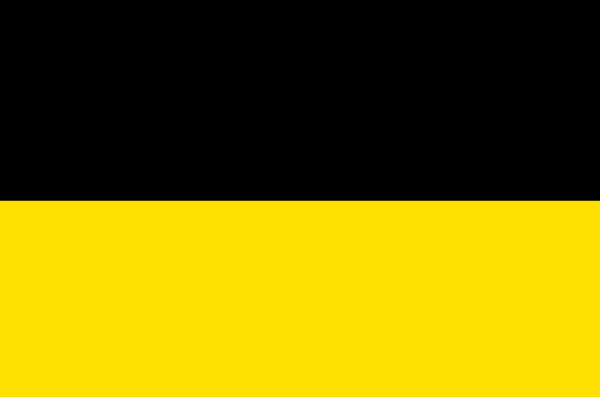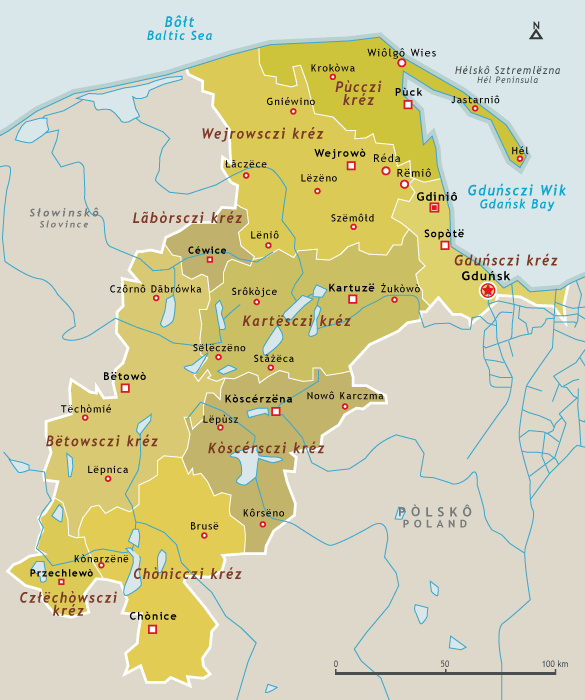Kashubia, the Slavs of the Baltics

Direct descendants of Slavic tribes of Pomerania (meaning countries along the sea, in this case the Baltic), the Kashubians are able to reiterate their identity in a more open Poland. Often assimilated into the Poles, they are distinguished by their language. Kaszub is the name of the coat, which they traditionally wore.

Living between different states, sometimes German, sometimes Polish, the Kashubians survived under the Communist regime that tried to assimilate them. The Kashubian families had to speak their language in secret but managed to preserve it and pass it on. For a long time Gdańsk, the main city of Kashubia, was better known under the German name Dantzig.
Today, the Kashubians aspire above all to safeguard their language, but movements for the creation of a Kashubian region are emerging, even if Kashubia has never been a sovereign state. Despite a low number of native speakers, the majority of the population consider themselves Kashubian. Permission to use the language in conjunction with Polish since 2005 has reinforced this sentiment.
Nowadays taught to 6,000 students, Kashubian is an optional subject for the school-leaving exam since this date.
Many associations for the promotion of Kashubian culture have been formed over the past few years. The principal organisation is the Kashubian-Pomeranian Association. Odroda, another association, fights for the rebirth of Kashubian culture.

Identity card

| Name | Kaszëbë | Kashubian Kaszuby | Polish (Kashubia) |
| Population | 2,515,000 inhab. (2006) (including 570,000 Kashubians) |
| Area | 6,870 km² |
| Languages | Kaszëbsczi | Kashubian (without official status) Polski | Polish (official) |
| Number of native speakers | 108,000 | Kashubian (2011) |
| State of guardianship | Poland |
| Official status | None |
| Capital | Kartuzë | Kashubian Kartuzy | Polish |
| Historic religion | Roman Catholic |
| Flag | Fana Kaszëbsczi | Kashubian (Kashubian Flag) |
| Anthem | None |
| Motto | None |

Timeline

- 13th century • First mention of the Kashubians on the seal of Barnim.
- 13th century • The duke of Pomerania is named the duke of Kashubia.
- 1648 • The kings of Sweden are “dukes of Kashubia”.
- 1843 • The Prussians take control of Kashubia. The Kashubians emigrate en masse to North America.
- 1919 • Preferring to be Polish rather than German, the Kashubian activist Antonie Abraham declares “There is no Kashubia without Poland and no Poland without Kashubia.”
- 1939–1945 • Summary executions of Kashubians by the Nazis.
- 1945 • The Kashubian, germanised by force between the 14th and 19th centuries, are expelled from Poland during liberation.
- 1990 • Movements in favour of the Kashubian language are reborn after the fall of the Communist regime in Poland.

Brief history

The Kashubian movement is basically structured with regards to the language. The first activist in favour of the language, Ceynowa Florian, worked largely on linguistic standardisation, notably on orthography and grammar. This work dates from 1879. Initiating literary journals, e.g. Zrzësz Kaszëbskô, these activists facilitated a distribution of the language up to the present day. Thus today, teaching has been able to expand and the number of students totals 6,000, which is unfortunately very few in relation to the total number of scholars. The Polish authorities, reluctant to install an official bilingualism, have nonetheless ratified the European Charter for Regional or Minority Languages. Bilingual signs were installed in the 2000s, but the latter were quickly damaged by people opposed to all forms of multiculturalism in Poland.

Geography

Kashubia has never had a defined status. It is a Pomeranian territory, literally “along the sea”. Pomerania and Kashubia have always been divided up among many regions or states (Poland, Denmark, Saxony, Brandenburg, Prussia, Sweden and Germany). Gdansk is certainly the most emblematic city. Traditionally, Kashubian society revolved around fishing and agriculture, explained by its position near the Baltic Sea. The city of Gdansk was rapidly turned over to industrial activities. The principal Kashubian cities are Gdansk, Wejrowo, Karuze (considered the de facto capital), Betowo, Koscerzena and Chonice. Kashubia represents almost the whole of the new voivoide (administrative division) of Pomerania. It brings together 9 of 15 districts (powiat) in this region, sometimes only partially.



